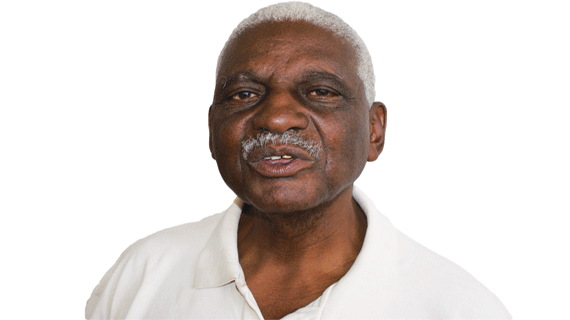
IN THIS series we will tend to repeat some of the points that have been dealt with in a previous article.
This is done in order for us to extend certain ideas, to emphasize some corrections and give a chance for some of these corrections to sink. Look at the following sentences all of which are wrong :
- Kade belokhu bemile belindele ukuholiswa impuphu .
- Ebe ngakangitsheli ukuthi ngenzeni .
- Kuhle ukuthi ubekwazi ngomdabuko wakini.
- Sawosa inyama enengi silungiselela idili lakhe
- Wekeleni ukungiphathela umtshwankela kini?
Although we have tried to explain why these are not correct we must try again in the hope that readers of these articles will now eliminate them from their speech .
- It is wrong to say bemile. The correct form is bemi.
In Ndebele the single syllable verb stem (monosyllabic verb stem) does not take the suffix ile to form the participle (past or present) like others such as — adla — dlile, – fa>file, – pha —phile and so on. The — ma — mi as in umi.
Hence, bebemi phansi kwesiduli (recent past) and Babemi eduze kwedwala lakoMlotshwa (remote past). Please do not say, Wobani lilokhu limile ngize ngibuye. Say wobani lilokhu limi.
- To say ebe is not good Ndebele. Say ube — as in ubehamba, ubezithulele, ubezigqaja ngobuhle bakhe.
- The verb stem azi does not take the formative aba in any word or speech formation at all.
The verbal noun uku is simply added to the verb stem as in za to ukuza, busa to ukubusa.
Vowel verbs also form the verbal nouns in the same way, as in uku — azi , uku -osa, uku -eqa, etc to be ukuazi, ukuosa and ukueqa. However, vowels never follow next to each other. Instead, they are separated by a semi-vowel w or y. Hence, ukuwazi which becomes ukwazi. Ngifuna ukuthi ngazi and not ngibekwazi.
Do not say Bafunelani ukubakwazi ngezinto ezingaqondananga labo? Bamele babekwazi ukuthi lokho kubi.
- Chamisa under fire over US$120K donation
- Mavhunga puts DeMbare into Chibuku quarterfinals
- Pension funds bet on Cabora Bassa oilfields
- Councils defy govt fire tender directive
Keep Reading
This is very bad Ndebele. Simply drop the aba to become ukwazi or drop the ebe to get bakwazi .
- The stem osa becomes ukosa.
This comes from uku + osa is ukuosa which grammatically would be ukuwosa/ ukuyosa, but Ndebele prefers to elide w which takes the place of u, so it becomes ukosa. You say Besisosa inyama.
Sosa inyama present tense) and Sosa inyama (remote past), the difference being how you say it.
So the correctness or wrongness of a sentence depends on how it is said. For instance, Ngihamba lobaba (stress on ha) is correct Ndebele, but ngihamba lobaba (low stress on ha- and mba) is wrong .
Another common verb that is used wrongly by some people is the verb stem -ala. Look , you say for -dla> wadla, bona > wabona , thunuka > wathunuka.
Why don’t you do the same for – ala > wala? Why do we get sentences like, “Umfana wayala ukuhamba yedwa?” Why not wala?
Don’t say UNtombizodwa bamyalisa ukuya kwendela koKhoza its Bamalisa and not bamyalisa.
We also want to remind the readers about the verbs buya and buyisa. Look at these sentences:
- Ubobuya ngakithi uzongibona
- Wena mfana , bisa lapha imali leyo
- Angakutshaya, mntanami, lawe ubombisela
The word buya (to come back/to return ) is contrasted with the word woza (come). You say Woza lapha Sizi, (Come here Sizi).
It is wrong to say Buya lapha Sizi, unless Sizi was here before and you want her to come back. You say Weza lentombi yakhe ezoyitshengisa uyisekazi, kade wacina ukuzasibona, ubobuya phela, sesikukhumbula. These are the correct uses of buya. Use woza for come.
Woza lapha wena. Izulu liyeza (not labuya) liqhuba othekwane.
The verb bisa does not exist in the Ndebele language. It is usually confused for the verb letha. One hears such atrocious statements like, MaMoyo, bisa lapha iyembe yami leyo.
Ubobisa ikhompiyutha yami kusasa. Please say letha.
If you mean “bring back” then say buyisa sentence No 3 above carries the same idea.
The misguided parent wants to say ubombuyisela (hit back).
Readers should work hard to overcome these common language errors. Many more are coming.










